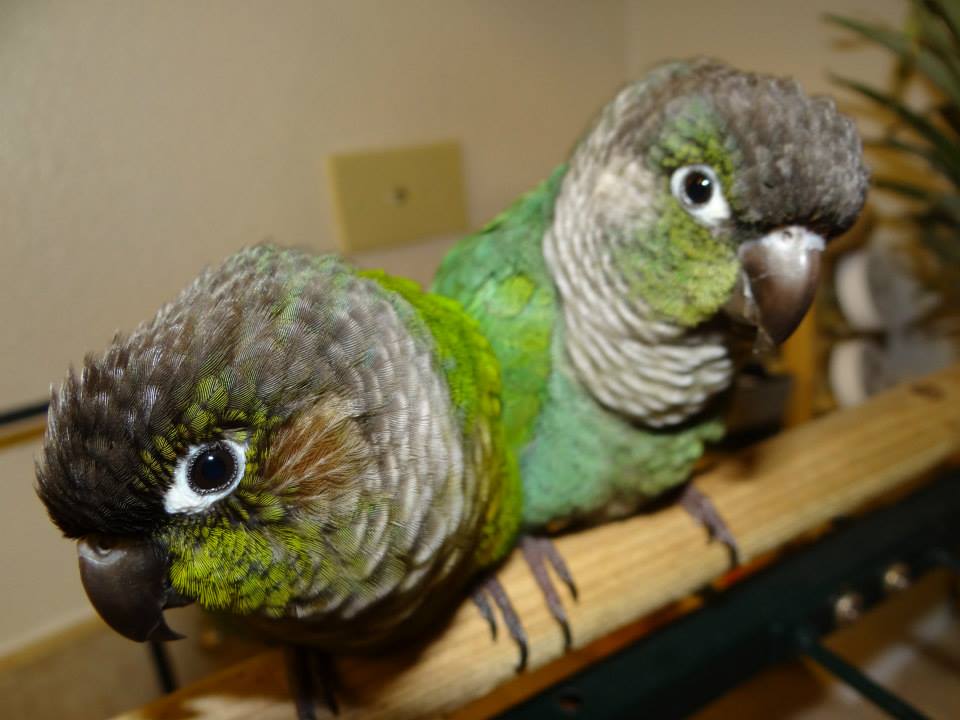We have all heard horror stories of people paying large sums of money to strangers in return for birds that never arrive, but many of us do not live within traveling distance of a breeder who works with the species we are looking for. How do we avoid being scammed as we attempt to add a bird to our family? Here are 10 ways to protect yourself from scammers.
1) Reverse image search any pictures used in the advertisement or website
A truthful seller will post pictures of their own animals not stock images or pictures pirated from other sites.
2) Request videos and video chats, not just pictures
Pictures are easy to fake and to collect from multiple sources. Videos are harder to fake after the seller has made claims about the behavior and name of the bird. Ideally they should be willing to video chat with you and the bird so you can personally see them handling the bird. This not only guarantees that the bird actually exists, but it will also show you how the bird responds to the handler and prevent you from buying a completely wild bird that has been “hand raised.”
3) Ask bird groups for reviews and referrals
Reviews can be tricky but its best to try to get them anyway. If the breeder doesn’t have a website or social media account where reviews can be posted, consider asking in bird groups and forums if anyone has dealt with a particular breeder or rescue before. If the breeder does have a formal website that makes it even easier to find others who have dealt with them and it provides additional things to look for.
4) Look for price inconsistencies
In an advertisement or on the price list of a website look at prices for all species available, not just the one you are interested in purchasing. Maybe you are looking to purchase a sun conure and the website lists them at $500. You know that in your area that is a fair price, but you look around and notice that american budgies are listed at $125 (extremely high) or that hyacinth macaws are available for $2,000 (extremely low). This is likely an indication that the “seller” is guessing at prices as they assemble a website for a fake business. A lot of people fall for the extremely low prices specifically. Remember; if it is too good to be true, it is probably too good to be true.
5) Never trust an egg seller
You can buy chicken eggs to hatch at home, so you should be able to buy parrot eggs, right? Wrong. This isn’t an article on the dangers of buying an unweaned parrot so I won’t dive into all the ways that would be wildly cruel and unethical, but focus on the practical. Parrot eggs do not travel well, they are difficult to incubate properly, and they are worth much much more after they have hatched. All this boils down to the simple fact that no one, and I mean absolutely NO ONE who is even remotely ethical or experienced would ever dream of selling fertilized parrot eggs. Anyone claiming to do so is at best completely clueless (and will sell you eggs that die before you get them) or trying to scam you.
6) Distrust anyone who has whatever you want no matter what you ask for
Are you looking for a just-weaned african grey? Ask the seller if they also have proven pairs. How about single adult males? juvenile females? A seller may honestly have many birds available but be suspicious of someone who seems to have an unlimited supply of whatever you happen to mention you want.
7) Be skeptical of unlikely combinations
If the seller claims the bird is only four months old then it is unlikely to already speak 50 words. If they claim it is a sweet hand fed baby then it is unlikely to also be a proven breeder. If it is “highly trained and has been in movies and on tv” then it is unlikely to be available for rehoming at a low price. Parrots cannot legally be Service Animals in the USA no matter what the seller claims.
8) Know which terms apply to parrots and which to puppies
If the advertisement or website claims the bird has all its shots, is registered, has its papers, etc, run away. Parrots have no registry like dogs do, and they do not have required shots. Some birds will have received a Polyoma vaccine if they are going to be in pet stores or other crowded places so it is ok to ask “which shots?” if the seller mentions them, but almost always this is just someone who doesn’t know about parrots trying to scam people using the same language they would use when running a puppy scam. Also, parrots are not spayed or neutered. There are a few vets in the USA who are capable of preforming these procedures but it is done only in extreme medical need since the very vascular reproductive system of parrots makes it an incredibly risky procedure. If you think you are being scammed, go ahead and ask your seller if your bird will arrive neutered or if that will cost extra. The worst thing that can happen is a funny conversation with an honest seller who has to explain to you that birds aren’t routinely fixed.
9) Know shipping basics
Scammers love to claim they can ship a bird “right to your door” or “all around the world.” It is technically possibly to ship adult birds through the United States Postal System as long as they weigh more than 6 oz and less than 25lbs. This means that small birds such as most conures, Indian Ringnecks, Quakers, etc, cannot be shipped through the mail as they are too small. Also, birds sent through the mail are required to be shipped without food or water. While a shipper might honestly be willing to send your amazon parrot to you without food or water, do you really want to do business with someone who thinks that is acceptable? Almost all breeders who ship do so through air cargo but many scammers claim to use the mail. As for shipping “around the world” yes, birds can be shipped across international borders; with thousands of dollars in quarantine fees and other expenses, much paperwork, many permits, months of preparation, and only certain species across certain borders. This is not a process that is feasible for a pet bird purchase no matter how often scammers claim they can have your black palm cockatoo on your doorstep in Iowa from Australia in 24 hours.
10) Send Money Securely
Wire transfers are not safe. Scammers will often claim that they are, but you cannot get your money back if they person you send money to decides not to deliver. Facebook pay, Cash App, etc are also not safe options. When paying strangers PayPal is your safest bet. Some breeders will ask you to send your PayPal payment “friends and family” instead of “goods and services” because this saves them from paying a fee. That fee is what PayPal charges vendors to do business, and if you choose to send your money “friends and family” instead, PayPal will not be able to assist you in getting money back if you need to.
Have you ever had an encounter with a scammer? Tell us about it below!


Leave a Reply